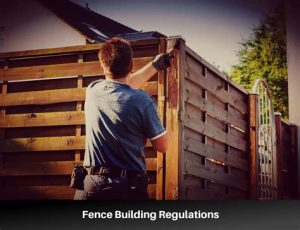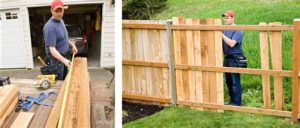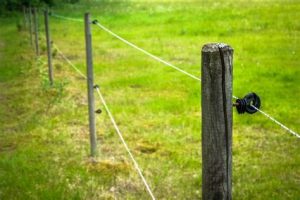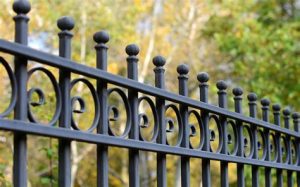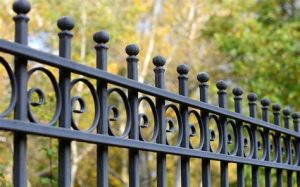Explore essential factors for installation, material selection, winter maintenance tips, and the benefits of professional installation for a successful project.As winter approaches, many homeowners find themselves wondering about the feasibility of installing a fence during the chilly months. You might be surprised to learn that winter fence installation is not only possible but can also be beneficial if you plan ahead. However, several factors must be considered, from the effects of cold weather on installation processes to choosing the right materials that can withstand the elements. Additionally, understanding winter maintenance tips and the advantages of hiring professionals can make a significant difference in the overall success of your fence project. In this blog post, we will address all your questions regarding winter fence installation, helping you decide if this time of year is the right choice for your fencing needs. Whether you’re looking to enhance privacy, security, or aesthetics, we’ve got you covered!
Factors to Consider
When contemplating the installation of a fence during the winter months, there are several factors to consider that can significantly impact the outcome of your project. From weather conditions to soil composition, each element plays a crucial role in determining whether winter is a suitable time for installation.
One of the primary factors is the temperature. Extremely low temperatures can affect the materials used in fence installation, particularly concrete and wood. Cold weather can slow the curing time of concrete, which is essential for the stability of fence posts. Similarly, wood can become brittle and more susceptible to damage during freezing temperatures.
Additionally, ground conditions are another critical factor. Frost can create hard, frozen ground that may make it challenging for machinery to dig post holes. As a result, assessing the soil composition and frost line can help you determine the feasibility of a winter installation.
Finally, the weather forecast should play a significant role in your decision-making process. If heavy snowfall or ice is predicted, it could hinder both the installation process and access to the site. Always check local weather updates to avoid unnecessary complications.
Effects on Installation Process
When considering the installation of fences in the winter, several effects can influence the overall process. Cold temperatures can significantly impact the materials used, the techniques employed, and the overall timeline of the project.
First and foremost, ground conditions play a crucial role in fence installation. Frozen ground may make it difficult for post holes to be dug, requiring additional effort to thaw the ground or adjust installation methods. This can lead to delays and may require the use of specialized equipment to ensure proper post placement.
Additionally, the materials themselves can react differently in cold weather. For example, some types of wood might become brittle, and metal components can be more prone to damage during handling. Proper care in selecting and handling fencing materials is essential to ensure durability and performance, regardless of the season.
Moreover, the installation techniques might need to be modified to accommodate for winter conditions. For instance, the curing time for concrete may be extended due to lower temperatures, necessitating extra patience from the installer and the homeowner.
In summary, while installing a fence in winter is possible, understanding the effects on the installation process can help ensure a successful and durable outcome.
Choosing the Right Materials
When it comes to installing a fence during the winter, selecting the right materials is crucial. The cold weather can affect certain materials differently, which can ultimately impact the overall durability and appearance of your fence.
- Wood: While aesthetically pleasing, wood can be problematic in winter installations. The wood may absorb moisture, which can lead to warping or splitting once the temperature fluctuates. If you opt for wood, ensure it is properly treated and sealed.
- Vinyl: This material is a great option for winter installations. It is resistant to swelling and shrinking, making it less vulnerable to the cold temperatures. Additionally, vinyl does not require much maintenance, which is a significant advantage duringwinter.
- Metal Fencing: Whether aluminum or steel, metal fencing is a strong option. However, it is essential to check for any signs of rust, as moisture can cause corrosion. Choosing a metal material that has been treated with a weather-resistant coating can enhance longevity.
Another factor to think about is the installation process for the material you choose. Some materials may require specific tools or techniques that may not be suitable for winter conditions. Always consult the manufacturer’s guidelines to ensure you are following the best practices for installation in cold weather.
Lastly, don’t forget to consider your local weather conditions.
Winter Maintenance Tips
Maintaining your fence during the winter months is crucial for ensuring its longevity and functionality. Cold temperatures, snow, and ice can all affect the integrity of your fence, so it’s important to implement a few winter maintenance tips.
- Regular Inspections: Conduct regular inspections of your fence to check for any signs of damage caused by harsh weather. Look for cracks, rotting wood, or loose panels.
- Keep It Clear: Ensure that snow and ice are regularly cleared away from the base of your fence to prevent moisture buildup, which can lead to rot or rust, especially in wooden and metal fences.
- Seal Any Gaps: Use caulk or other sealants to fill in any gaps or cracks in the fence to prevent cold air and moisture from infiltrating. This will help protect the materials used in your fence.
Additionally, consider making use of salt or sand to provide traction on icy paths near the fence without causing damage to the fence materials. In extreme cold, avoid removing snow with sharp tools that may scratch or dent the surface of your fence.
Finally, always ensure that any repairs or upgrades needed for your fence are completed before the snow season begins. Taking these preventive measures can save you from more extensive repairs after winter ends.
Professional Installation Benefits
When it comes to installing a fence, many homeowners may consider a DIY approach to save on costs. However, hiring a professional for installation offers numerous benefits that can outweigh any short-term savings. One of the most significant advantages is the expertise that professionals bring to the table.
Professionals possess extensive knowledge about various types of fencing materials, styles, and installation techniques. They can help you choose the right materials that suit both your property and your requirements. Moreover, they understand local regulations and permits needed for fencing, ensuring that your project is compliant with community guidelines.
Additionally, a professional installation can save you time and effort. Installing a fence can be a labor-intensive task, particularly in winter conditions. Experienced installers can often complete the project much faster than an inexperienced homeowner, allowing you to enjoy your new fence sooner. Beyond speed, professionals also ensure that the fence is installed correctly and securely, which can save you from potential problems in the future, such as leaning or sagging fences.
In summary, while DIY installations might seem cost-effective at first glance, the benefits of hiring professionals for fence installation include their expertise, compliance with regulations, time-saving efficiencies, and high-quality work. Investing in professional installation really pays off in the long run.
Frequently Asked Questions
Can fences be installed in winter?
Yes, fences can be installed in winter; however, certain conditions such as ground freezing and snow can impact the installation process.
What challenges might arise when installing fences in winter?
Challenges include frozen ground, limited daylight hours, and potential snow accumulation, which can make it difficult to dig post holes and transport materials.
Is the installation process different in winter compared to other seasons?
Yes, winter installations may require special equipment like heated tools for digging or concrete mixing, and additional precautions must be taken to ensure materials do not freeze.
What type of fencing materials are best for winter installations?
Vinyl and aluminum fences are considered more suitable for winter as they are less affected by cold temperatures compared to wood fences, which may warp or crack.
Are there any special considerations for concrete during winter fence installations?
Yes, concrete sets slower in cold temperatures, so it’s crucial to use winter-grade concrete mix and consider insulation for the curing process.
How can homeowners prepare for a winter fence installation?
Homeowners can prepare by clearing snow from the installation area, ensuring proper tools are ready, and scheduling installation when weather conditions are favorable.
What are the benefits of installing a fence in winter?
Benefits include less competition for contractors, potentially lower prices during the off-season, and immediate protection for landscaping from snow accumulation.
